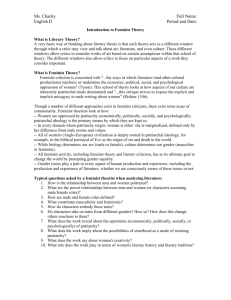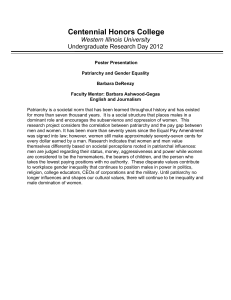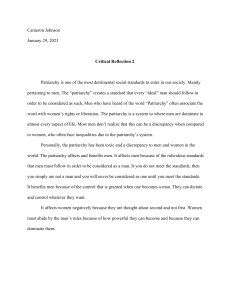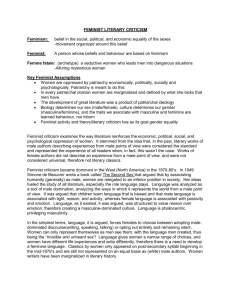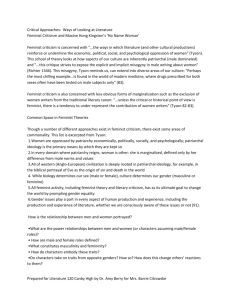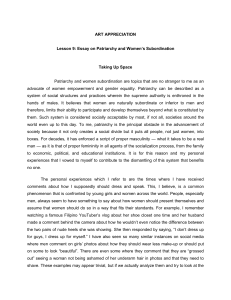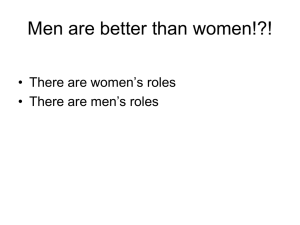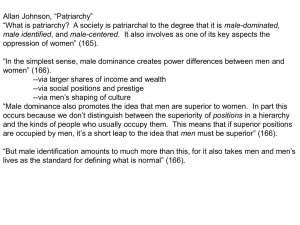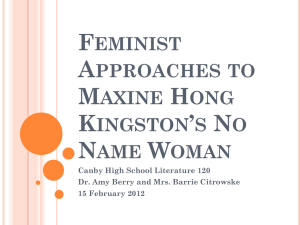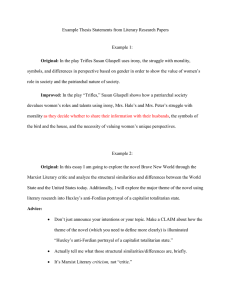Introduction to Feminist Theory
advertisement
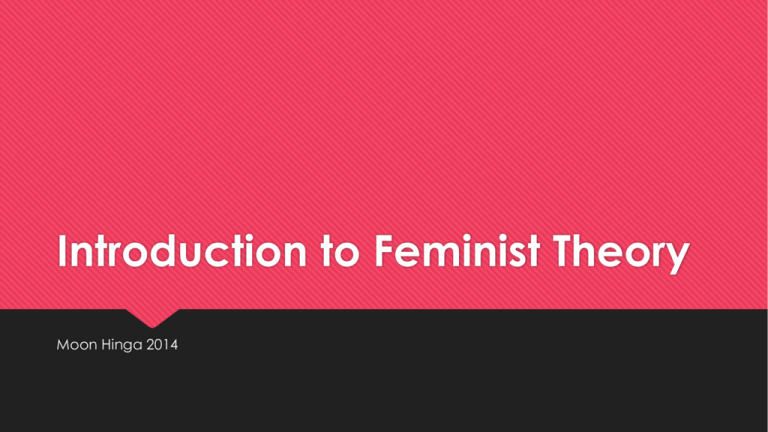
Introduction to Feminist Theory Moon Hinga 2014 So what is it? Feminist theory is one of the major contemporary sociological theories, which analyzes the status of women and men in society with the purpose of using that knowledge to better women's lives. Basically… It’s kind of like Social Class Theory, but instead of focusing on the relationships between the classes it focuses on the relationships between the genders. This theory examines the thoughts, behaviors, values, enfranchisements (admittance to different areas of society), and power in interactions between the sexes. 3 common thoughts of Feminist Theory Our civilization is prevalently patriarchal – or male dominated (male president, male business leaders, male religious heads, and so on). The concepts of "gender" are largely, if not entirely, cultural constructs, affected by the universal patriarchal biases of our civilization. This patriarchal way of thinking also saturates books that have been considered great literature. These books lack independent female role models, are addressed to male readers, and leave the woman reader an alien outsider or else ask her to identify with male values and ways of perceiving, feeling, and acting. What is Patriarchy? Patriarchy is a social system in which males are the primary authority figures. They are central to social organization, occupy roles of political leadership, moral authority, and control of property. It implies the institutions of male rule and privilege, and involves female subordination. What questions do we ask? How is the relationship between men and women portrayed? What are the power relationships between men and women? How are male and female roles defined? What constitutes masculinity and femininity? How do characters embody these traits? Do characters take on traits from opposite genders? How so? How does this change others’ reactions to them? What does the work reveal about the operations (economically, politically, socially, or psychologically) of patriarchy? What does the work imply about the possibilities of sisterhood as a mode of resisting patriarchy? What does the work say about women's creativity? What does the history of the work's reception by the public and by the critics tell us about the operation of patriarchy? What role the work play in terms of women's literary history and literary tradition? (Tyson) Is this good for womankind? How are women being portrayed? Check out this 1930’s ad What do you see? What is it selling? What is it saying? Now ANALYZE the ad… Use the questions in your notes… Here are some more… Stereotype much? Let’s look at something more modern… What’s going on here? What do you see? What is the advertisement for? Let’s analyze, shall we? Ok, now go to the questions in your notes… And finally… What if we switched the women in ads with men? http://www.youtube.com/watch?feature=player_embedded&v=2SrpARP_M0o
